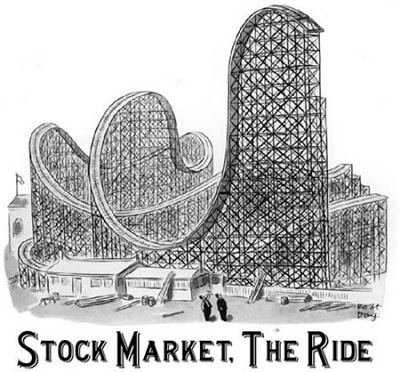By Thomas PalleyThe US is currently enjoying another stock market boom which, if history is any guide, also stands to end in a bust. In the meantime, the boom is having a politically toxic effect by lending support to Donald Trump and obscuring the case for reversing the neoliberal economic paradigm.For four decades the US economy has been trapped in a “Groundhog Day” cycle in which policy engineered new stock market booms cover the tracks of previous busts. But though each new boom ameliorates, it does not recuperate the prior damage done to income distribution and shared prosperity. Now, that cycle is in full swing again, clouding understanding of the economic problem and giving voters reason not to rock the boat for fear of losing what little they have. Read rest here.
Topics:
Matias Vernengo considers the following as important: Palley, Slow recovery, stock market
This could be interesting, too:
Angry Bear writes Trump’s Stock Market’s Bump Appears to be Over
Matias Vernengo writes Paul Davidson (1930-2024) and Post Keynesian Economics
Matias Vernengo writes Paul Davidson (1930-2024)
Matias Vernengo writes Keynes’ denial of conflict: a reply to Professor Heise’s critique
By Thomas Palley
The US is currently enjoying another stock market boom which, if history is any guide, also stands to end in a bust. In the meantime, the boom is having a politically toxic effect by lending support to Donald Trump and obscuring the case for reversing the neoliberal economic paradigm.
For four decades the US economy has been trapped in a “Groundhog Day” cycle in which policy engineered new stock market booms cover the tracks of previous busts. But though each new boom ameliorates, it does not recuperate the prior damage done to income distribution and shared prosperity. Now, that cycle is in full swing again, clouding understanding of the economic problem and giving voters reason not to rock the boat for fear of losing what little they have.

